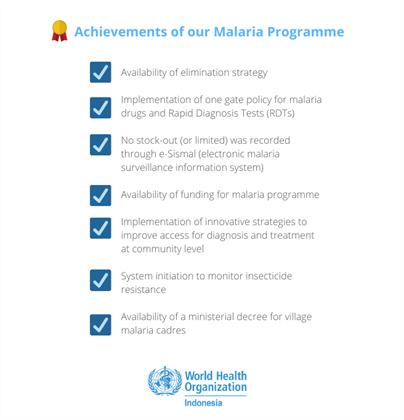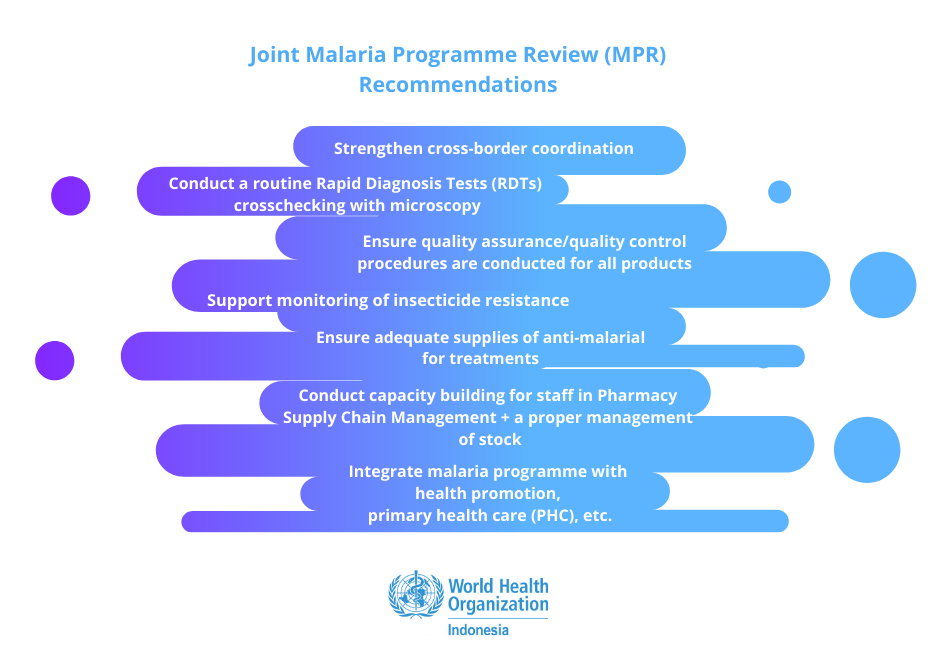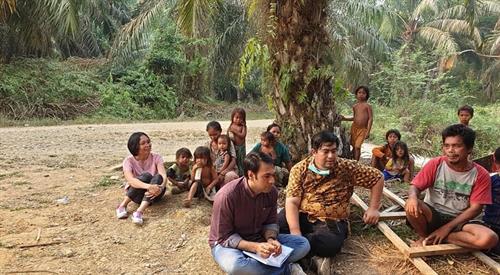Indonesia is one of nine malaria-endemic countries in the South-East Asia region, accounting for 21% of the regions reported cases and 16% malaria deaths. By 2018, a total of 285 districts in Indonesia successfully achieved their target of eliminating malaria. This, along with a growing list of other achievements, firmly places Indonesia on the right track to reach the 2015-2019 National Mid-Term Development Goal (Rancangan Pembangunan Jangka Menengah Nasional/RPJMN) for malaria elimination indicators.

Figure 1: Seven achievements of the Malaria Programme
Despite these successes, more efforts are required to fully accomplish Indonesia’s malaria elimination goal by 2030. It is estimated that currently only 72% of the population live in malaria-free areas and the reduction of malaria cases stagnated between 2015 and 2018.
To this end, a joint Malaria Programme Review (MPR) was conducted from 9-21 September 2019. The MPR was led by external malaria experts in collaboration with national experts and relevant stakeholders (WHO, UNICEF, Centers for Disease Control and Prevention/CDC US and Non-Governmental Organisations).
The joint MPR was conducted specifically for periodic and collaborative evaluations of the nationally-controlled programmes to provide evidence and recommendations to improve operational performance and delivery of anti-malarial interventions.
Reviews were conducted in eight areas: Tabalong (South Kalimantan), Belu (East Nusa Tenggara), Central Maluku, East Sumba, West Lombok, Penajam Passer Utara (East Kalimantan), Pangandaran (West Java), and Sarolangun (Jambi). By reviewing the current operational performance in these areas, it is possible to identify programme achievements, best practices and lessons learnt, critical issues, areas for improvements, and the root causes of the problems. A number of recommendations were made based on the MPR findings (listed below).

Figure 2: Seven recommendations made based on the Malaria Programme Review findings
The findings and recommendations of this review will be used as a reference in the development of the 2020-2024 Malaria National Strategic Plan, the 2030 Roadmap for Malaria Elimination, and the Prevention of Re-Introduction Plan as Indonesia continues to move towards becoming a malaria-free country.

Image: Community outreach was conducted with the Sarolangun tribe in Jambi as part of the Joint Malaria Programme review process. Credit: WHO/Subdirectorate of Malaria
Main Image: Farmers in mosquito breeding areas were interviewed during the Joint Malaria Programme review. Credit: WHO/Subdirectorate of Malaria
